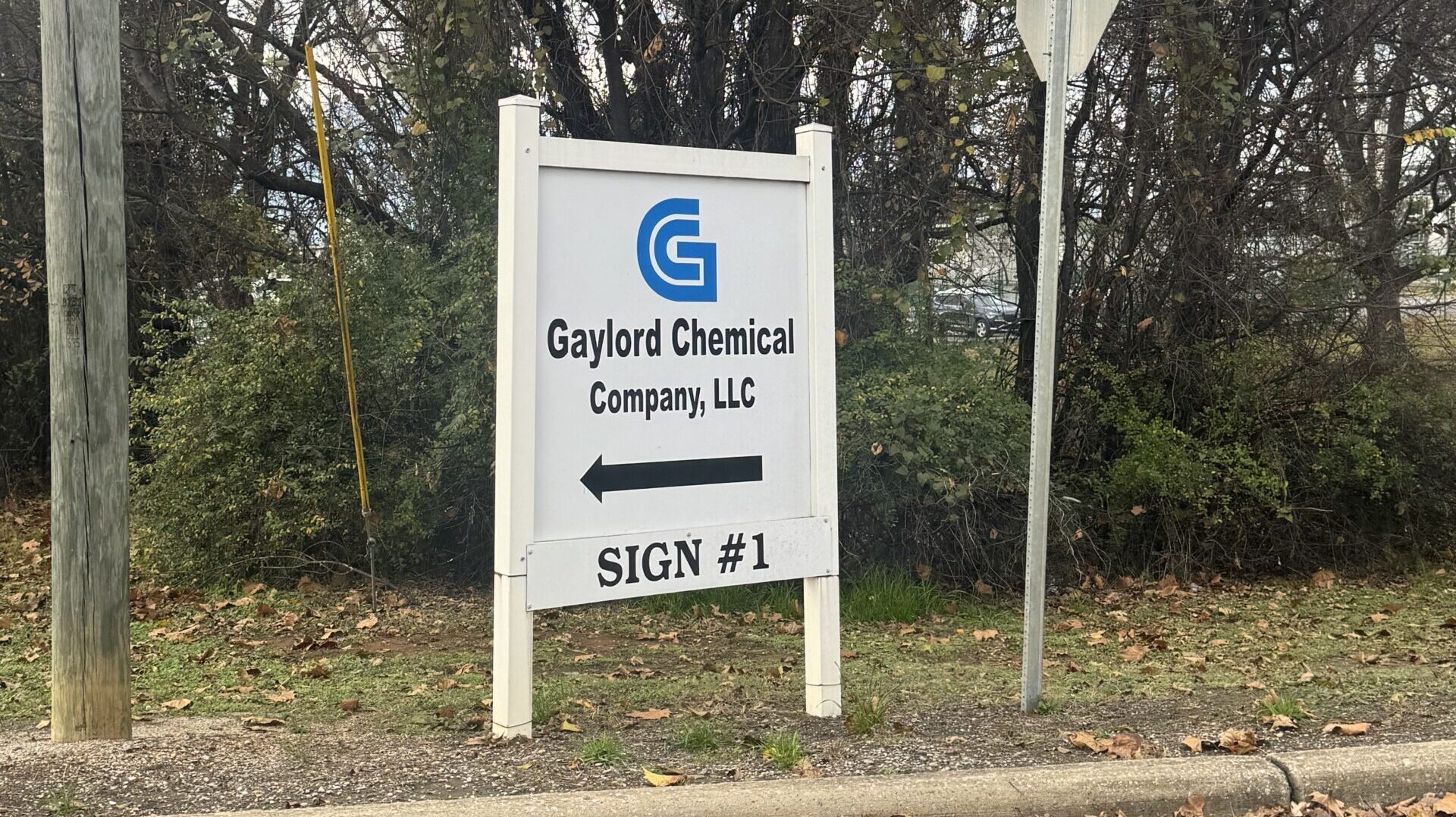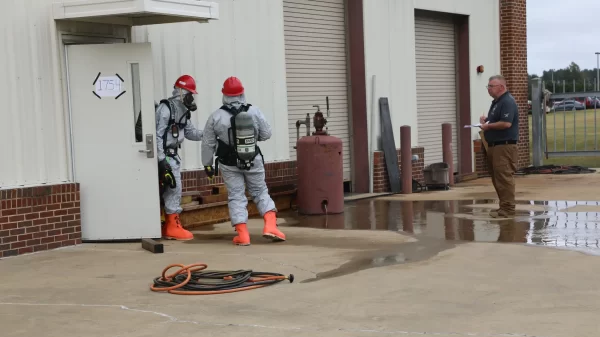|
Getting your Trinity Audio player ready...
|
This past Tuesday and Wednesday, 19 production and maintenance workers at the Gaylord Chemical manufacturing facility in Tuscaloosa voted on whether to unionize with the International Chemical Workers Union Council, a subunit of the United Food and Commercial Workers International Union.
Late Wednesday night, the National Labor Relations Board reported that the union won the election, with 16 employees voting in favor of unionizing and 3 voting against.
Workers at the Tuscaloosa plant primarily make the chemical compounds dimethyl sulfoxide (DMSO) and dimethyl sulfide (DMS). DMSO is a solvent with medical and industrial applications and DMS is commonly used as a flavorant.
Jordan Easley, the ICWUC’s national organizing coordinator, told APR that several employees reached out to him a couple months ago asking about unionizing.
“I just want to thank the [ICWU] for getting behind us and supporting us. As soon as we reached out to them, they were quick to respond,” one Gaylord Chemical employee stated.
The Gaylord Chemical workers are “a great group of folks,” Easley said. “They excelled when it came to open support, public support, and the numbers reflected that. They got what they deserve.”
In order to test support for the union, Easley drafted and distributed a union recognition letter. Seventeen workers signed these letters, but one ended up leaving the company before the union election took place. He also described the company’s management as “a fairly typical management faction.”
“Obviously most employers don’t want a union,” Easley elaborated. “But I think they were stopped in their tracks. They are reminded that you need workers more than workers need you.”
The ICWUC’s victory is a fairly rare one in the historically anti-union state of Alabama. Past organizing attempts, like the recent ones at Mercedes in Vance and the Amazon facility in Bessemer, or the historic ones that constituted the CIO’s “Operation Dixie,” have mostly floundered in the face of opposition from local politicians.
As a result, while a higher percentage of workers in Alabama—8.6 percent—are represented by unions than in some other Southern states, the state’s union density is still markedly below the national rate of 11.2 percent.
However, faced with stagnant and/or falling union membership rates in recent years, many advocates of labor unions have begun calling once more for funding and launching ambitious organizing drives in the South.
In February 2024, the United Auto Workers committed $40 million to help fund two years of Southern organizing campaigns. Ben Carroll, the Southern Workers Assembly’s organizing coordinator, wrote in the socialist magazine Jacobin that “other major unions can and must follow [their] lead.”
However, any attempts at expanding organized labor’s footholds in the South, and in Alabama specifically, will likely face significant headwinds under the incoming Trump administration. Unions largely viewed Trump’s first term appointees as hostile and many experts believe the SEIU’s decision to re-enter the AFL-CIO is one indicator of the labor movement preparing to ride out the storm.
A representative of Gaylord Chemical declined to comment when contacted for this story.





















































